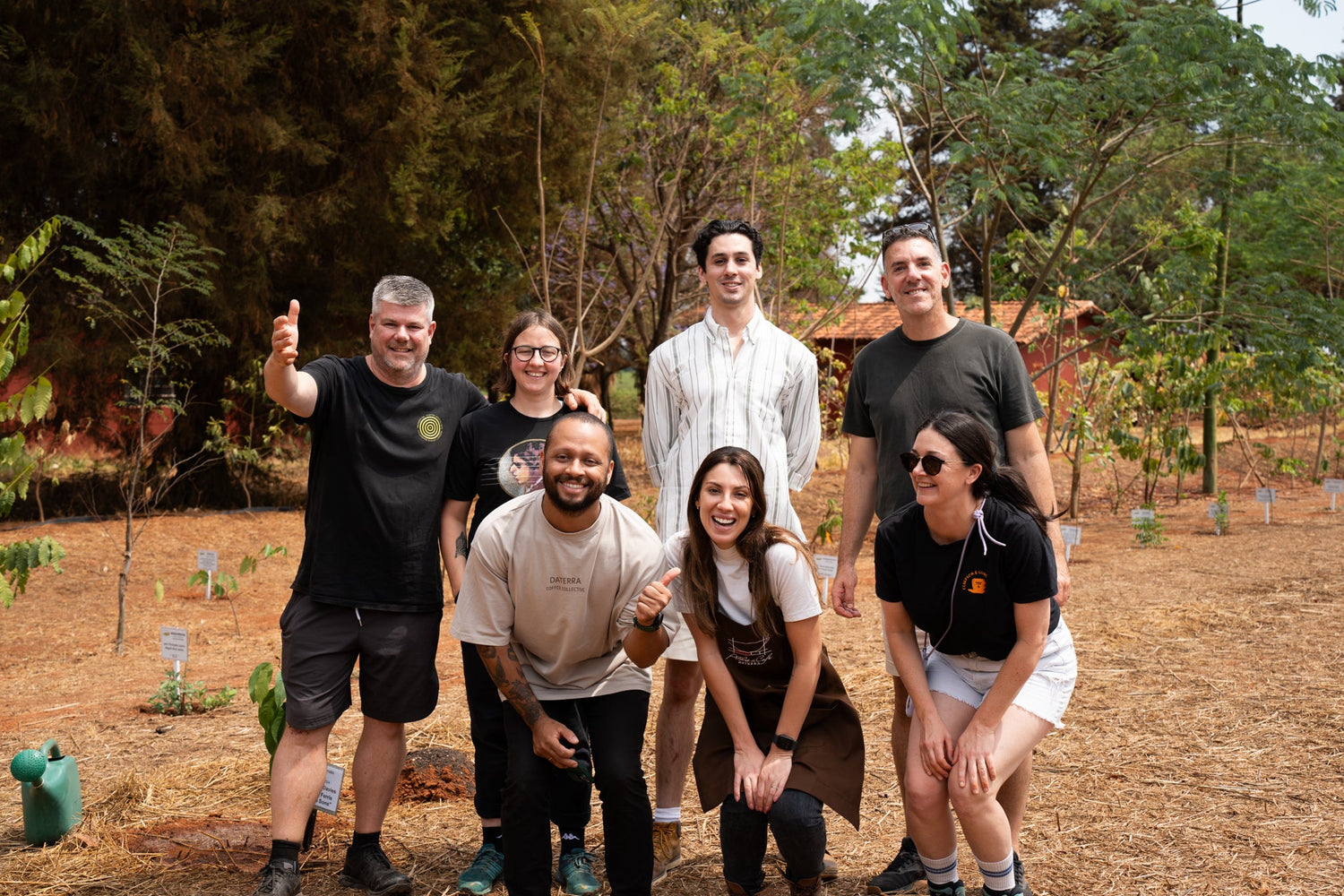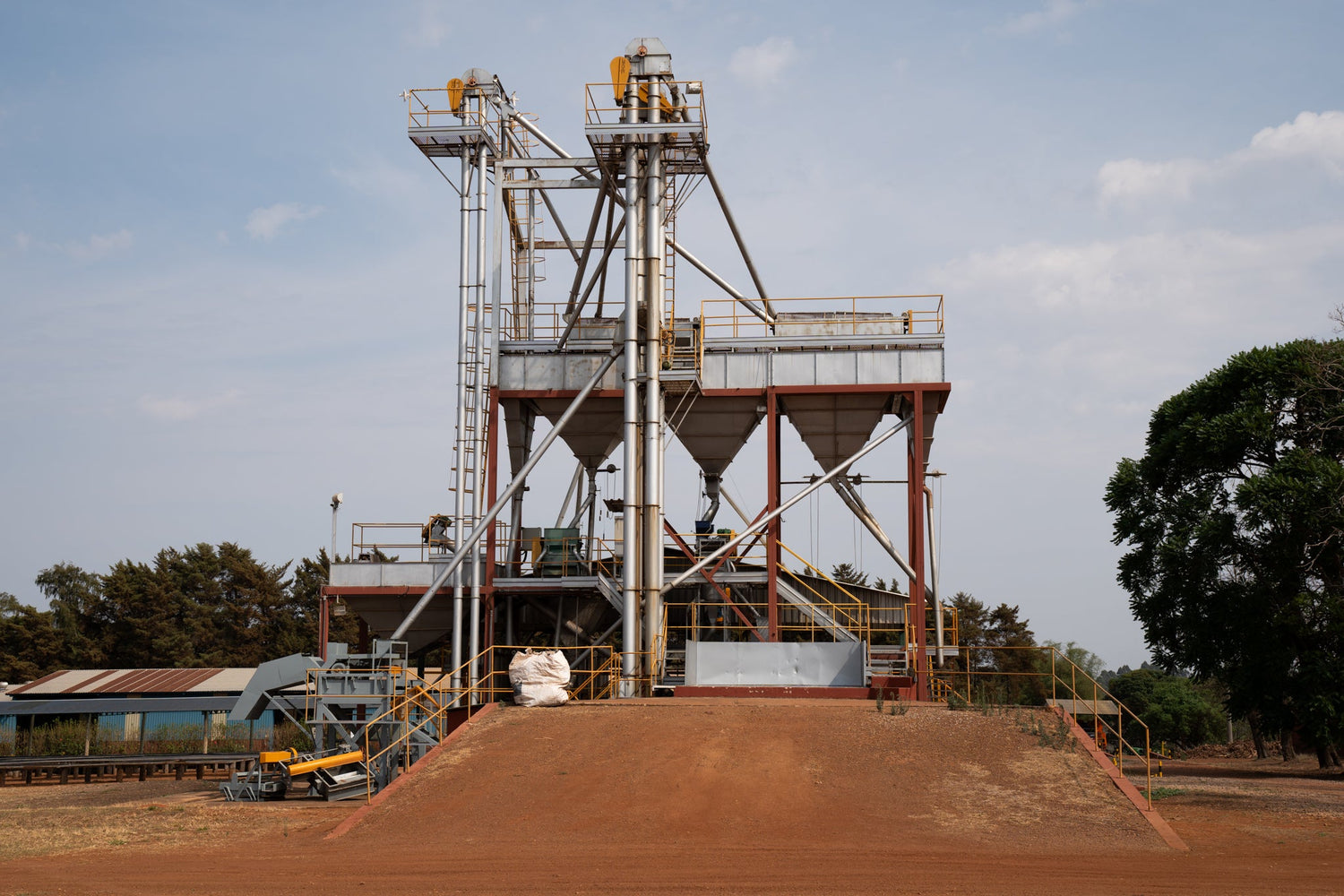The Adventurous one
The Fields is a series of coffees to show our adventurous side and sense of discovery. As we aim to bring forward new and innovative ideas within the coffee industry it's always exciting to discover a region of the world that supplies great tasting coffee. This will be the first time we showcase coffee produced in Ugandan coffee and we are very excited to explore all aspects of it.
It’s always exciting to see something new on the shelves and African coffee has always been a favourite amongst coffee lovers.
A brief History of Coffee from Uganda
Generally speaking Ethiopia and Uganda dominate coffee production in Africa, coffee from the African continent accounts for around 12% of the world's coffee production. Amongst this Uganda accounts for 3.4% of the world's coffee production according to Coffee Hunter 2020.
There are many high producing coffee companies across the globe, Uganda is currently the 8th highest producer of coffee worldwide, but when you differentiate between Robusta and Arabica - Uganda sits much lower with production of Arabica beans. 80% of Ugandan coffee is of the varietal Robusta with the other 20% varietal Arabica, as stated by Espresso and Coffee Guide.
When we discuss coffees coming from Africa you’d perhaps assume that Kenya, Burundi, Rwanda or Ethiopia would be the favoured region of choice from roasters but Uganda is breaking through with some great coffees.
Here’s how Uganda is putting its mark on the specialty coffee industry
Uganda is traditionally known not so much for its production of Arabica coffee but more so robusta. But times are changing and the production of Arabica coffee has become much more apparent in the East African country. Though certain areas of Uganda are now producing some well rounded and wonderfully complex coffees. Up until 1990 Uganda's coffee production was owned by the Coffee Marketing Board but now most of the coffee is produced by private farms which means there is less control over the production and coffee farms can be more experimental.
Agri Evolve Ltd is a Social Enterprise working with farmers from Mbata Village in the Rwenzori Mountains in Uganda. The goal is to work alongside them to improve their quality and productivity, increase income and profitability for themselves, their families, and their communities. We spoke with the Director of Agri Evolve Martin Rowland to discuss coffee production in Uganda.
- Firstly what makes Ugandan coffee unique?
“Ugandan arabica is grown in 2 main areas – Mount Elgon in the east, on the Kenyan border, and the Rwenzoris in the west, where the Rwenzoris form the boundary with DR Congo. We work only in the Rwenzoris where the high altitude of cultivated land up to 2400 m, fertile volcanic soils, plentiful rain, and wide range of coffee varieties cultivated all contribute to the unique complexity of Rwenzori arabica coffee. Coffee was planted as a cash crop in the early 20th century. The main varieties include SL28 and more recently SL14 and probably older early varieties like Nyassaland. Over the years the farmers have at times selected cherries from their best bushes to raise new plants. This process has led to an interesting and complex range of varieties now being harvested. The typical profile of the coffee is ‘a rich and clean cup with good acidity, full-body & sweet fruity flavours’ . Each harvest (two each year) brings forward different flavour notes, strawberry is often a very discernible flavour, but notes of chocolate are also common along with a range of tropical fruit flavours.”

Red Cherries (Image by Agri Evolve)
- What has helped Ugandan coffee rise within the speciality industry?
“One of the main factors was the liberalisation of the coffee sector in 1992. Prior to this coffee marketing was the responsibility of the government. Coffee exporting companies have become increasingly involved, especially in the Mount Elgon area, and more recently in the Rwenzoris. Prior to this, lack of infrastructure and support meant that many farmers had lost the knowledge and motivation to produce a good crop. Local traders bought unripe and poorly processed coffee for a low price. Rwenzori natural coffee, known as DRUGAR (DRy UGandan ARabica) had a reputation of one of the lowest quality, lowest value arabica coffees, usually trading at C -40 cents.
This is the situation we found when we established Agri Evolve and started working in Uganda in 2016. We teamed up with one of the longest established exporters, Kyagalanyi Coffee Ltd to provide better support to the smallholder farmers. Traditionally farmers have harvested unripe cherries and dried them on the ground. We started buying cherries from the farmers and processing them ourselves so that we could ensure good processing took place.
This also means that we can assess the quality of the cherries before drying starts. We only purchase ripe cherries, for which we pay good prices – far above what the farmers can earn by selling to traders. The farmers have quickly appreciated the advantages of working in this way and the quality of the finished coffee has risen significantly with the higher standards we have set.”
The People
- How does coffee production have a positive impact on the people?
“I thought it would be nice to touch on the work with clean water, reforestation and microfinance schemes.
Coffee has long been one of the main cash crops for the smallholder farmers in the Rwenzoris. The income from coffee is widely used to pay for school fees. The better the income, the more chance the children have of receiving a good education, or even an education at all. With significantly improved incomes farmers are also able to upgrade and improve their houses and pay for medical care when needed.
Additionally, we are actively involved in other projects to bring improvements to the local conditions. These are usually delivered in partnership with other organisations who provide funding, but we also contribute 40p from every Kg of green coffee we sell in the UK towards a range of projects. These are delivered under our ACE 2030 programme which emphasises the link between Agriculture, Community and the Environment.
We have started a long-term tree planting programme, which will benefit coffee production through the use of shade trees which further improve the quality of coffee produced. Fruit trees will help provide good food and another source of cash for the families. Trees will also provide for firewood, thus preventing the degradation of local forests, and will help to stabilise soil on the steeply sloping land. And of course, every tree planted and grown fixes carbon and reduces the effect of climate change.
Lack of clean water is an issue, with many families taking water from streams and rivers which are also used for washing and bathing. We have established protected springs which pipe water to standpipes near people's homes. We are establishing Village Savings and Loan Association (VSLA) projects which encourage groups of farmers, and especially women farmers, to come together to use a savings scheme to fund improvements in their farming activities. These groups are being greatly welcomed, and they also act as a catalyst for farmers to work together specifically with their coffee crops, ensuring high standards of production and efficient transport to the coffee stations.”

Handfuls of Red Cherries (Image by Agri Evolve)
Sustainability
- What measures are being taken out to maintain sustainability through production?
“With the significant improvements in recent years the farmers are increasingly optimistic about the future of coffee farming and see it as a very positive way of improving their income to a sustainable ‘living income’ where they can comfortably meet all their financial needs. Our team of agronomists provide training and advice to help farmers further improve their yields as well as the quality of their coffee. The whole sector has been neglected over many years and there is much to do to continue the process.
For example, many of the trees are old, some over 50 years old, and so stumping is one way of rejuvenating a coffee tree. Farmers need good training to be confident to do this. Planting new seedlings is also a way of strengthening the sector and we have established and supported over 20 community nurseries producing new seedlings from good quality seed. These are now being planted across the region.
As well as stumping, farmers are taught the importance of soil conservation, mulching, and pruning and other Good Agricultural Practice. We are increasingly enrolling farmers on UTZ and Rain Forest certification schemes, though at present not all coffee produced is ‘certified’.
Sustainability depends on long-term commitment and successful operation as a business. Agri Evolve has shown both of these over the past 5 years and we remain totally committed to working alongside farmers throughout the Rwenzoris to bring the inherent excellent quality from the coffee trees to customers around the world.”
Credits:
https://espressocoffeeguide.com/gourmet-coffee/arabian-and-african-coffees/uganda-coffee/
https://www.coffeehunter.com/coffee-country/uganda/



